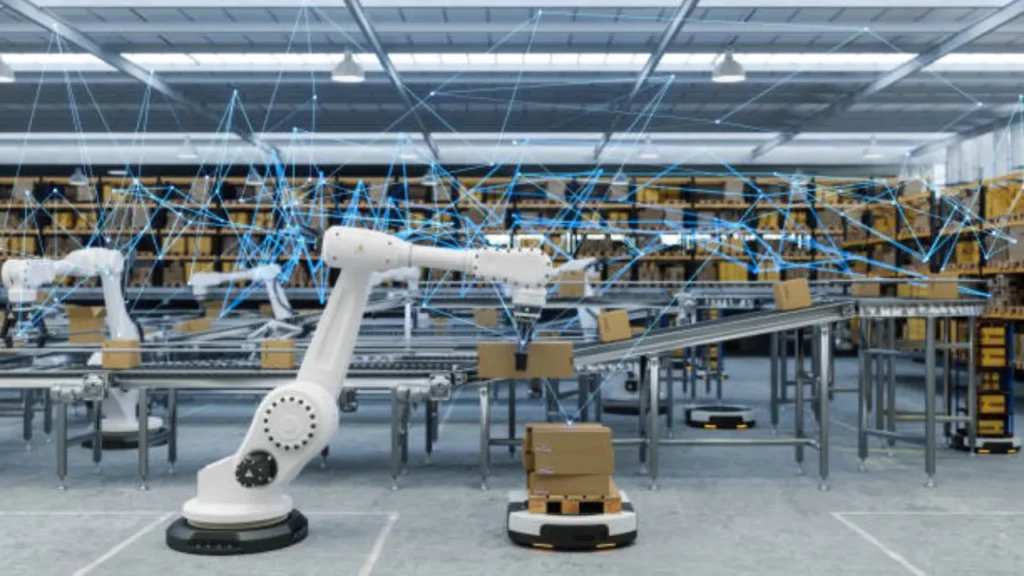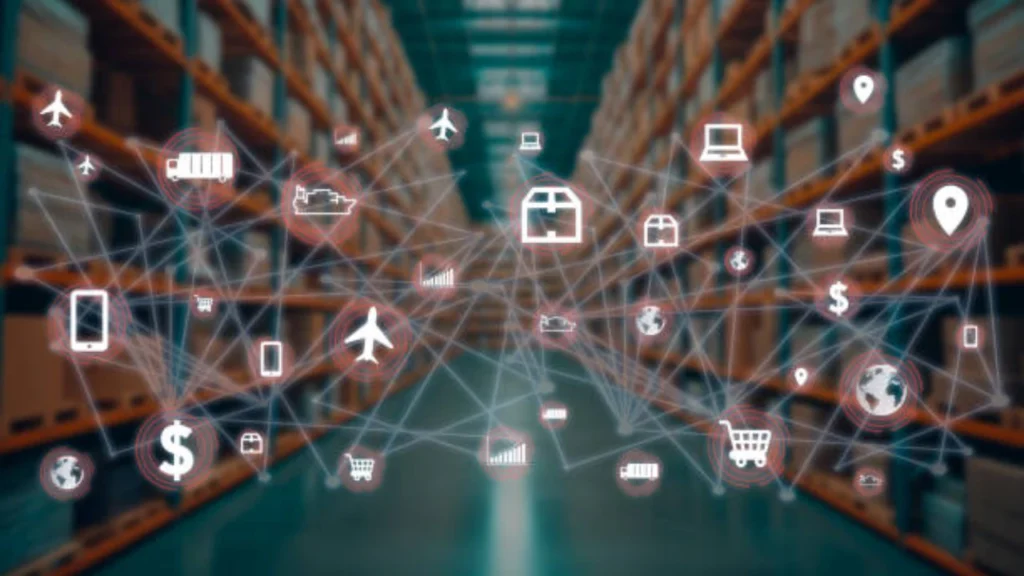The modern supply chain is a vast, intricate system that connects every production stage, from sourcing raw materials to delivering products to customers. Managing such a complex network has always been challenging, but in today’s world—with globalization, economic uncertainties, and ever-changing customer expectations—businesses need smarter, more agile solutions.
Enter Artificial Intelligence (AI): a groundbreaking technology that’s revolutionizing supply chain management in ways we couldn’t have imagined a decade ago. AI brings unparalleled efficiency, sustainability, and resilience to supply chains, empowering businesses to thrive in an increasingly competitive environment.
In this article, we’ll explore 10 transformative ways AI is reshaping supply chain management and why companies that adopt these technologies are leading the charge into the future.
Key Insight
“AI-driven technologies can reduce supply chain costs by up to 20% and boost delivery efficiency by as much as 30%. In today’s competitive landscape, that’s a game-changer.”
How Soon Will Artificial General Intelligence (AGI)Arrive?
1. Smarter Demand Forecasting with Predictive Analytics
Accurately predicting demand has always been critical for supply chain success, but traditional forecasting methods often fall short in today’s fast-paced world. AI-powered predictive analytics changes the game by leveraging:
- Historical sales data
- Real-time market trends
- External influences like weather patterns, holidays, and even social media sentiment
For example, an AI system can detect rising interest in a product based on social media buzz or seasonal trends. It then adjusts forecasts accordingly, allowing businesses to:
- Maintain optimal inventory levels
- Avoid costly stockouts or overstocking
- Fine-tune production schedules to meet demand
Case in point: Retailers using AI for demand forecasting have reported a 40% reduction in inventory issues, translating to significant cost savings and happier customers.
2. Streamlining Inventory Management
Managing inventory across multiple locations can be a logistical nightmare. That’s where AI shines, offering real-time insights into stock levels and automating key processes. AI systems can:
- Predict potential stock shortages before they occur
- Automate replenishment orders to prevent disruptions
- Optimize inventory placement to minimize transportation costs
Practical impact: By strategically positioning inventory closer to demand hubs, companies save on transportation costs—up to 15%—and ensure faster delivery times, improving customer satisfaction.
For example, major e-commerce companies that use AI to monitor their warehouses. These systems automatically move goods to locations with higher demand, ensuring smooth operations and cost efficiency.
3. Smarter Supplier Selection and Risk Management
Suppliers are the backbone of any supply chain, but relying on the wrong ones can lead to delays, cost overruns, and quality issues. AI helps businesses evaluate suppliers with greater accuracy by analyzing:
- Delivery performance
- Pricing and quality metrics
- Risk factors like geopolitical instability or financial health
This data-driven approach empowers companies to:
- Partner with the most reliable suppliers
- Negotiate better terms
- Proactively manage risks
For instance, a global manufacturing firm might use AI to predict potential disruptions in its supply chain—such as delays caused by political instability in a supplier’s region—and take proactive measures to avoid downtime.
4. Automating Order Fulfillment for Faster Delivery

Order fulfillment is a labor-intensive process prone to errors. AI-driven automation takes the guesswork out of this equation by handling tasks such as:
- Order entry and allocation
- Picking, packing, and shipping
Real-world example: Companies like Amazon have deployed AI-powered robots in their warehouses to streamline operations. These robots work alongside human employees to locate, sort and pack items with incredible precision. The result? A productivity boost of over 50%, reduced delivery times, and lower operational costs.
For customers, this means quicker, more accurate deliveries—something that’s become a baseline expectation in today’s market.
5. Optimizing Transportation and Logistics

Transportation is one of the most resource-intensive aspects of supply chain management. AI tackles this challenge head-on by optimizing delivery routes using real-time data such as:
- Traffic conditions
- Weather forecasts
- Fuel prices
By finding the most efficient routes, AI reduces fuel consumption, shortens delivery times, and minimizes emissions.
Did you know? Logistics companies using AI for route optimization have cut fuel usage by 10-20%, making their operations not just cost-effective but also environmentally sustainable.
In an era where eco-conscious practices are more important than ever, this is a win for both businesses and the planet.
6. Real-Time Supply Chain Visibility
Supply chain disruptions—whether caused by delayed shipments, supplier issues, or unforeseen events—can have a ripple effect on operations. AI-powered platforms provide end-to-end visibility, allowing businesses to:
- Track shipments in real-time
- Identify bottlenecks before they escalate
- Improve transparency across the entire supply chain
This level of visibility enables better decision-making and ensures that goods move smoothly from one stage to the next. For instance, if a shipment is delayed, AI can automatically adjust downstream schedules to minimize disruption.
The takeaway: Real-time visibility doesn’t just prevent headaches; it builds trust with customers and partners alike.
7. Mitigating Risks with AI
Supply chains are inherently vulnerable to risks like natural disasters, supplier failures, and geopolitical events. AI excels at analyzing vast datasets to identify potential threats and recommend proactive solutions.
For example, an AI system might detect signs of financial instability in a key supplier and alert the business to secure an alternative source. Or it could analyze weather patterns to predict disruptions caused by hurricanes or snowstorms, giving companies time to prepare.
Why it matters: Companies that leverage AI for risk management can adapt quickly to unforeseen challenges, ensuring business continuity and protecting their bottom line.
8. Driving Sustainability
Sustainability is no longer optional—it’s a business imperative. AI helps companies adopt greener practices by:
- Reducing waste through smarter inventory management
- Optimizing routes to lower fuel consumption and emissions
- Enhancing resource efficiency
For example, AI-powered logistics platforms have helped businesses reduce their carbon footprints by cutting emissions by 10-20%. This not only aligns with consumer expectations but also positions companies as leaders in sustainability—a key differentiator in today’s market.
Eco insight: Companies that embrace AI-driven sustainability practices gain a competitive edge while contributing to a healthier planet.
9. Enhancing Customer Experience
In today’s fast-paced world, customers expect real-time updates and quick resolutions to their queries. AI tools like chatbots and virtual assistants make this possible by:
- Providing instant updates on order status and delivery timelines
- Offering accurate product availability information
- Resolving common issues with minimal human intervention
The result? Faster response times, happier customers, and stronger brand loyalty. For businesses, improved customer service translates directly into increased revenue and repeat business.
10. Fostering Collaboration Across the Supply Chain
A successful supply chain relies on seamless communication between all stakeholders—suppliers, manufacturers, distributors, and retailers. AI-powered platforms facilitate this by:
- Automating data sharing
- Improving coordination through real-time updates
- Enabling faster decision-making across the ecosystem
Real-world impact: By breaking down silos and fostering collaboration, companies can create a more agile and efficient supply chain, better equipped to handle the demands of a global market.
The Bottom Line
“Integrating AI into supply chain management isn’t just a competitive advantage—it’s a necessity for businesses looking to thrive in today’s complex, fast-paced world.”
Conclusion
Artificial Intelligence is redefining the way supply chains operate, making them smarter, faster, and more resilient. From predictive analytics to greener logistics, AI is equipping businesses with the tools needed to overcome challenges and exceed customer expectations.
As these technologies continue to evolve, their applications will only grow, opening new doors for innovation and efficiency. Businesses that embrace AI today aren’t just solving current problems—they’re building the supply chains of the future.
Disclaimer
This article is for informational purposes only and should not be considered financial, operational, or investment advice.

Pingback: Top AI Inventory Management Software for Small Businesses in 2024: A Comprehensive Guide -